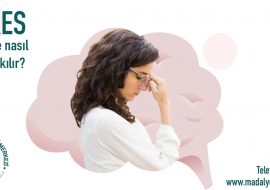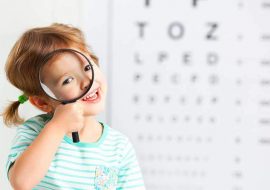
Attention Deficit Hyperactivity Disorder (ADHD) is a neurodevelopmental disorder characterized by symptoms such as inattention, hyperactivity, and impulsivity, which have negative effects on an individual’s academic, social, and professional life.
Symptoms of ADHD: ADHD is categorized into three types: predominantly inattentive type, predominantly hyperactive-impulsive type, and combined type.
- Predominantly Inattentive Type: Difficulty in focusing, daydreaming, difficulty in sustaining tasks, disorganization, and distractibility are prominent symptoms in this type.
- Predominantly Hyperactive-Impulsive Type: Restlessness, impulsivity, inability to stay seated, talking excessively, and interrupting others are common symptoms.
- Combined Type: This type involves a combination of inattentive, hyperactive, and impulsive symptoms.
Diagnosis and Prevalence: ADHD is commonly diagnosed during the school years when academic and social demands increase. The prevalence is around 5% in children and 2.5% in adults. It is more frequently observed in males, with females often showing the predominantly inattentive type.
Causes and Risk Factors: The development of ADHD is thought to involve both biological and environmental factors. Factors such as exposure to tobacco and alcohol during pregnancy, low birth weight, and brain injury are considered risk factors. Additionally, there is a genetic component, as having a family history of ADHD increases the likelihood of developing the disorder.
Treatment: ADHD is typically treated with a combination of psychotherapy and medication. Behavioral therapy focuses on improving social and academic skills, while Cognitive-Behavioral Therapy (CBT) helps manage impulsivity and enhance self-control.
Medication, when prescribed, is tailored to the individual’s needs. Common medications include stimulants (methylphenidate, amphetamine) and non-stimulants (atomoxetine, guanfacine). Regular monitoring by a psychiatrist is essential to adjust the dosage and manage potential side effects.
Concerns about Medication: Parents often express concerns about the side effects of ADHD medications. Common side effects include decreased appetite and sleep disturbances. However, under the supervision of a psychiatrist, these side effects can be managed, and the benefits of improved focus and impulse control can significantly outweigh the drawbacks.
Recommendations for Families: Creating a structured routine from waking up to bedtime, establishing clear rules at home and school, and using reward systems for adhering to these rules are beneficial for children with ADHD. Providing a visual schedule and using positive reinforcement tools, such as stickers or smiley faces, can be effective.
For adults with ADHD, adapting these recommendations to their daily lives can enhance organization and time management skills. Creating routines, breaking tasks into smaller steps, and rewarding oneself after completing tasks can be valuable strategies.
In conclusion, ADHD is a complex disorder with various symptoms and treatment options. Collaborative efforts between parents, teachers, mental health professionals, and individuals with ADHD are crucial for successful management and improved quality of life.












